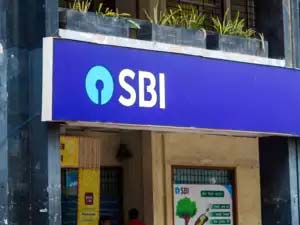- SBI announced that it has become the first bank to become a Trading cum Clearing (TCM) Member at India International Bullion Exchange
- India International Bullion Exchange (IIBX) is India’s first bullion exchange established in IFSC Gift City
- The reputation and credibility associated with the SBI brand are expected to instil trust and transparency among the buyers and suppliers in the IIBX ecosystem
NE BUSINESS BUREAU
MUMBAI, MAY 13
The country’s largest commercial bank, State Bank of India (SBI) has on Monday announced that it has secured the distinction of being the first bank to become a Trading cum Clearing (TCM) Member at India International Bullion Exchange. India International Bullion Exchange (IIBX) is a visionary initiative aimed at establishing a world-class platform for trading in precious metals. By becoming the first Trading Cum Clearing Member of IIBX, SBI reinforces its position as a key player in shaping GIFT City as the future of India’s financial markets.
This milestone enables SBI IBU Gift City to conduct trades on the IIBX platform and settle them on behalf of its clients. These developments happened against the backdrop of RBI guidelines, which permitted branches of an Indian Bank in GIFT IFSC to act as a Trading Member (TM) / Trading and Clearing Member (TCM) of IIBX and it also allowed SCC (Special category Clients which are nominated banks in India) to import gold through IIBX. The entry of India’s largest bank into the field as a TCM is poised to boost trading volumes at IIBX.
On this development, Dinesh Khara, Chairman, SBI, expressed his unwavering commitment to developing IFSC Gift City as a world class financial centre and said: “As the leading financial institution in India, SBI has consistently been on the forefront in revolutionizing the banking landscape. This step marks a change in India’s Bullion Market, ushering transparency, efficiency, and accessibility in the bullion trading market and this significant milestone solidifies SBI’s commitment to innovation and excellence in the financial sector.”










